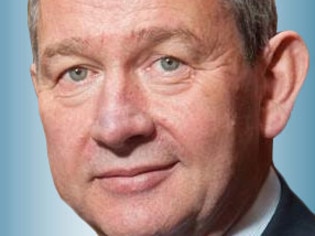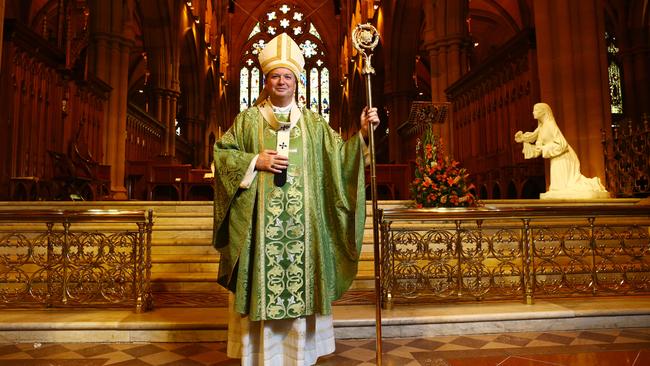King Charles would skew Republic debate

Whatever they may pretend, most people like certainty. It is comforting when you wake up to find Malcolm Turnbull is still aloof, Bill Shorten is coining zingers, and Barnaby Joyce remains everybody’s mad country uncle.
So to say the past few months have been unsettling is like observing Pompeii stood on shaky ground. Between Brexit, Donald Trump and the feminisation of AFL football, the world suddenly seems a lot less predictable.
Reassuringly, we still have the Queen. For sixty-five years, Elizabeth has reigned imperturbably and impeccably. If you remember a time before her accession, you also remember the Melbourne Olympics. It has seemed she will live forever.
But she won’t, as the last couple of months have made painfully clear. Recently, the 90-year-old monarch has been uncharacteristically ill, missing public engagements. Suddenly, she looks frail and vulnerable.
In fact, one day, the Queen will die. And on the law of averages, all perceptions of indestructibility notwithstanding, it could happen quite soon.
Once response could be that few Australians might care if a distant Hanoverian nonagenarian shuffles off this royal coil. Yet the truth is any abrupt departure of the Queen could set off a constitutional crisis here.
The starting point is that the Queen will be succeeded by someone who enjoys none of her staid popularity and displays little of her devotion to duty. Prince Charles, to use the technical language of heraldry, is an unlikeable nutjob.
He is opinionated. He writes unsolicited and probably unconstitutional letters to British ministers. He is married to one of the least-liked women in the old empire, having divorced someone who in popular imagination was a cross between St Theresa of Calcutta and Angelina Jolie.
The death of a queen whom almost no one actually could dislike inevitably will raise once more the question of an Australian republic. But the succession of someone so intrinsically unappealing means it will be raised with two fingers held high.
To make matters worse, the personality of our potential head of state will be exceptionally important in any Australian constitutional debate. This is because most Australians instinctively gravitate to the idea of a directly elected supremo.
This is despite the fact that an army of constitutional lawyers interminably can explain why such a system would be a disaster. But at least at first glance, the average Australian cannot see why, if we are to have one of our own, we should not get a vote.
This inclination makes Prince Charles dynamite. The simplest way to argue for an Australian republic will be to contrast the wacky Pommy prince with the most likeable Australian the republican movement can for the moment identify. The fact this type of argument is shallow, self-congratulatory and uninformed is beside the point. After all, these are the chief qualities the current chairman of the Australian Republican Movement, Peter FitzSimons, brings to the job.
Republicans who favour a directly elected head of state love to fantasise. They imagine a symbolic president trailing dignity, utterly above politics and dedicated to maintaining constitutional propriety. Think the love-child of Peter Cosgrove and John Eales.
Then banish the prospec, and start thinking of the implications of Donald Trump’s stunning victory for the character of an elected Australian head of state. The thing about popular election is that the winner will be precisely that: not necessarily respected, admired, and venerated, just very, very popular. Like Trump was at first.
In a national poll, the person who will emerge as Australia’s first president will be the candidate who can best mobilise a mass movement around their own personality and projected values, just as Trump did. And they will do it using the foil of that last weed of British royalty, Charles III. Their campaign strategy will be simple. How could I be worse than this know-all, flower-talking, profoundly un-Australian king?
So this is what we should ponder when we imagine our elected head of state. Not Peter Cosgrove or Quentin Bryce, but someone with ego, opinion and popular appeal to spare.
The sort of person who heads lists of popular Australians.
A Daryl Trump.
Over the years, popularity polls have revealed the type. At one point in the 1980s, Alan Bond topped the list. A hardy perennial is hyper-opinionated Dick Smith, who recently announced support for key policies of Pauline Hanson. If your tastes run to the Left, how about Cate Blanchett, who has a politically correct view on just about everything, or Tim “Rainstorm” Flannery?
The point about all these figures, love or loathe them, is they would not simply allow the elected government of the day to rule. Like Trump, their confidence and thirst for intervention would be insatiable.
Constitutional ignoramuses like FitzSimons will say, what does it matter? After all, head of state in Australia is a symbolic position. What could they actually do?
The simple answer is they would do a Trump. First, they would never shut up. Whenever they disagreed with a decision they would tweet their disdain, denounce their own government or front-tackle chat shows to undermine unpopular measures.
But the danger is much more profound. Our current, restrained governors-general are meshed in constitutional convention. They assent to bills and proclaim regulations when the elected government directs, because they know representative democracy demands it.
Can you imagine an Australian Trump with the mandate of direct election faced with an act to sign they did not like? Whether a Smith, a Bond, a Blanchett, a Kyle Sandilands or the latest runaway bride, the danger is they simply would overthrow convention and refuse.
The result would be a chaotic Australia with the elected government constantly subject to veto by a super-popular president.
Trump would be trumps.
Greg Craven is vice-chancellor of the Australian Catholic University.



To join the conversation, please log in. Don't have an account? Register
Join the conversation, you are commenting as Logout